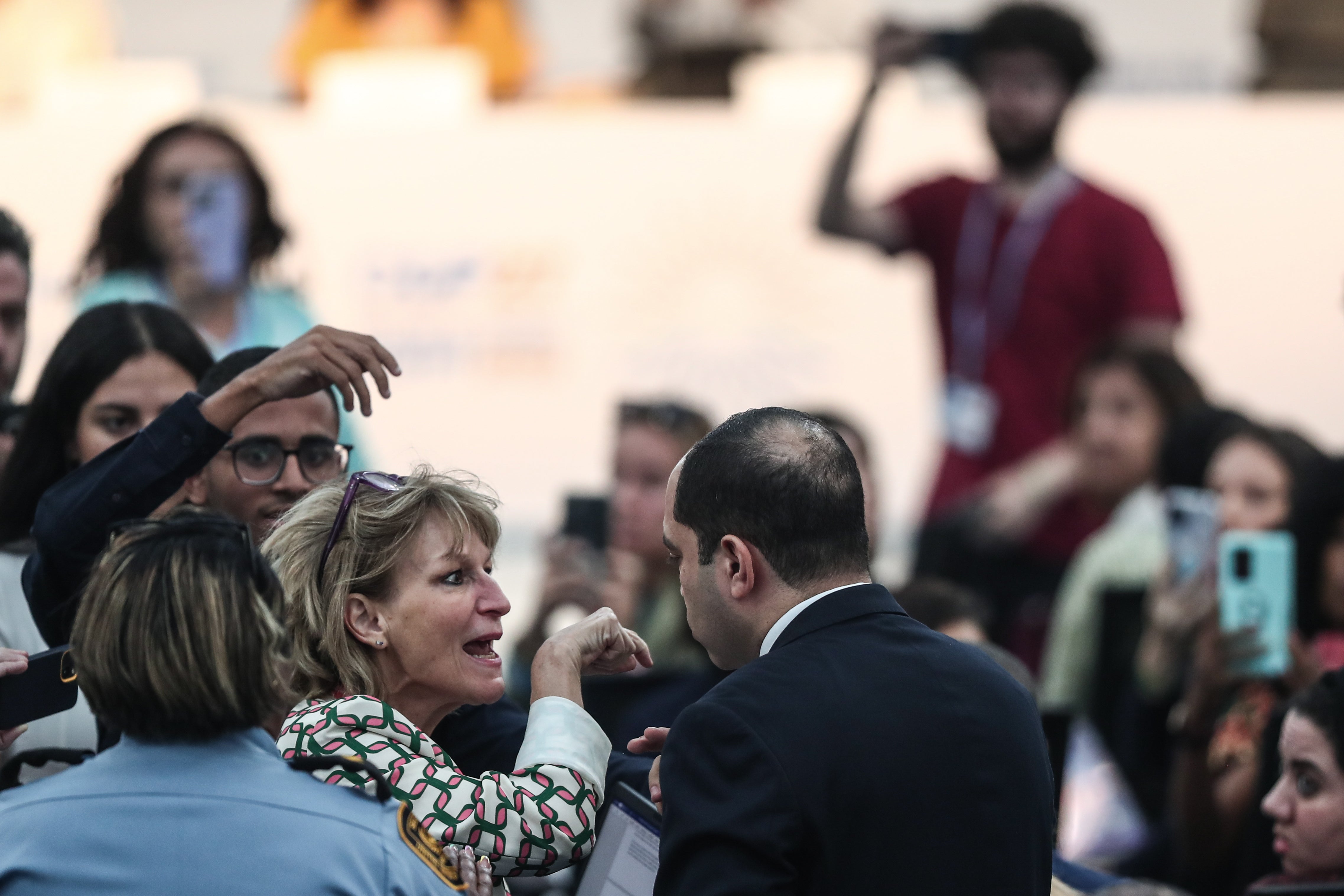
The family of a British citizen on a water and hunger strike in jail in Egypt say they do not know if he is alive, after the UK and the Egyptian authorities failed to provide proof of life despite repeated pleas.
Alaa Abdel Fattah, 49, a prominent British-Egyptian human rights activist, stopped drinking water on Sunday, after a six month hunger strike in protest of his unjust detention and Cairo’s refusal to allow him consular access.
Without water the Amnesty International prisoner-of-conscience will likely die within days.
Egypt is currently hosting Cop27 and British Prime Minister Rishi Sunak is in the country alongside dozens of world leaders, in his first major international trip since assuming office.
Before flying to Sharm El-Sheikh for the summit, Mr Sunak promised Mr Abdel-Fattah’s family securing his release was a “priority” for the government.
However since landing he has been filmed dodging journalists’ calls for comment on the status of the negotiations.
Sanaa Seif, Mr Abdel-Fattah’s youngest sister, who travelled to COP27, told journalists on Tuesday that the family did not know his location or whether he was still alive, and expressed concerns he may be being force-fed.
Mr Abdel-Fattah’s mother Laily Soueif, has spent two days outside the desert jail where he is being held north of the capital, but has yet to receive his weekly letter.
She will return on Wednesday.
“I asked the British authorities to get some proof that Alaa is alive and conscious. I did not get any response,” Ms Seif said at a packed press conference on Tuesday.
“We don’t know where he is. We don’t know if he’s alive… Right now, all we know is that Alaa stopped drinking water [over] 50 hours ago.”
Mr Abdel-Fattah, one of the most well-known pro-democracy activists in Egypt, has spent most of the last decade behind bars. He is currently serving his latest five-year sentence for sharing a Facebook post that was critical of prison conditions.
He has repeatedly called for the release of all those unjustly detained in the country.
Egyptian President Abdel-Fattah al-Sisi has been accused by right groups of strangling freedoms and violently stamping out dissent since storming to power after a military coup in 2013.
The authorities have arrested tens of thousands of people, while hundreds of protesters have been killed over the years. Protests are effectively banned, and hundreds of websites have been shut down Including most recently this week Human Right Watch’s website.

Egypt, for its part, has repeatedly denied having any political prisoners and maintains its prisons meet international standards.But Mr ABdel-Fattah’s jailing has sparked uproar across the world with United Nations’ human rights chief Volker Turk becoming the latest prominent figure to join calls for his release warning on Tuesday the 40-year-old father’s life is “at imminent risk”.
Celebrities from around the world have also urged Egypt to immediately free him.
Renowned Indian author Arundhati Roy on Tuesday sent the family a video which she called a “message of solidarity from all all of us who want [Alaa] free and with us in the world”.
Rights groups, meanwhile, have said they fear he will not be able to survive a water and hunger strike.
“I cannot emphasise how dangerous his situation is,” Hussein Bayoumi, Amnesty International’s Egypt researcher, told The Independent on Tuesday.
“It is key that the Egyptian authorities allow contact [with his family] and access to independent medical professionals chosen by his family that can access his medical situation otherwise we risk Alaa Abdel-Fattah dying in prison.”
Mr Bayoumi also called for the “immediate and unconditional” release of all political prisoners in Egypt as well as for Cairo to lift restrictions on civil society groups, the media and protesters.
“We are extremely concerned by a wave of arrests, at least 182 have been arrested in relation to calls for protests” around COP27, he added.
In Tuesday’s press conference Mr Abdel-Fattah’s family also said they feared he is being force fed as they have been permitted no contact with him.

“Are they force-feeding my brother right now? Is he handcuffed in a bed, put on IVs against his will?” His youngest sister asked.
Ms Seif added that whatever happened her brother had won “the symbolic battle”.
“I just hope that he and his body are not sacrificed for it”







